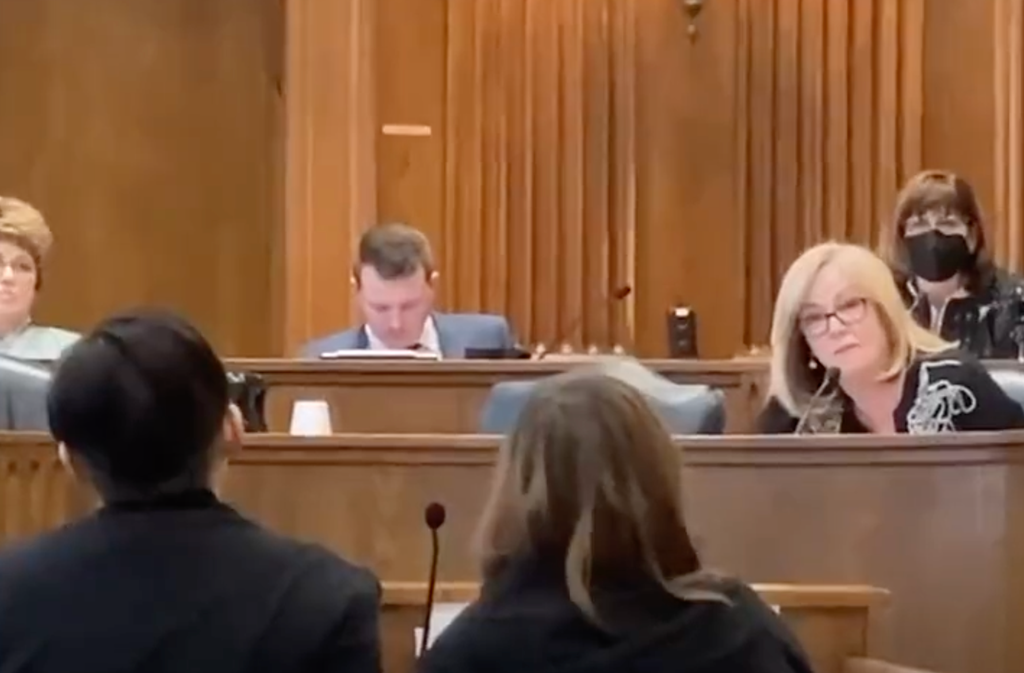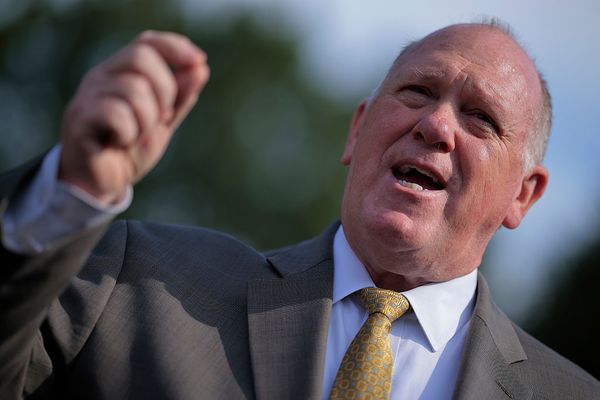
When 14-year-old Avery Jackson appeared before a legislative committee in Missouri this month to testify against a bill that would ban transgender women and girls from participating in school sports, a Republican state senator asked invasive questions about their body and said it “creates problems” if someone in the bathroom “has a male body”.
“No, it doesn’t,” the nonbinary Kansas City teenager responded. “You should let people go to the bathroom.”
Republican state Senator Elaine Gannon then asked: “Are you gonna go through the procedure?”
“You think we’re going around forcing our genitalia in people’s face?” Avery replied. “We’re trying to use the bathroom. And what you want to do is not let people do that.”
The senator replied that she was “seriously just curious”. She later apologised for “inappropriate” questions, according to the St Louis Post-Dispatch.
The Missouri legislation, the “Save Women’s Sports Act”, has nothing to do with bathrooms, but the senator’s comments revived what LGBT+ advocates have characterised as transphobic hysteria aimed at erasing transgender people from public spaces.
The bill is among several similar pieces of legislation working their way through state legislatures across the US. The measure seeks to ban “students of the male sex, as assigned at birth” from participating in sports “designated for females, women, or girls” and would block funding to schools with transgender athletes.
Two other Missouri bills target transgender people, including a measure to prohibit gender-confirming healthcare for minors and legislation to ban changes to sex designations on birth certificates.
The Human Rights Campaign shared footage from state senate’s 1 March education committee hearing this week, adding that “transphobic legislators have no place” in the state legislature.
Avery Jackson’s mother, Debi Jackson, condemned Senator Gannon’s comments “asking a 14-year-old on public record about genitals”, adding that “kids aren’t going around exposing themselves to kids wanting to play sports with their friends”.
“That’s what this bill is,” she said. “And getting wrapped up in genitals and bathrooms gets us so far away from that and dehumanises our children. My child is so much more than genitals, and that’s what I need you to see. That’s what every family has come year after year, begging you, demanding that you see.”
She added: “I don’t know what your genitals are. I have not made an assumption, and I’m not willing to ask that question because it’s frankly inappropriate.”
In their testimony, Avery Jackson told the committee that transgender students should be able to play sports without political interference and warned against the potentially lethal impacts of further marginalising children already at greater risk of suicide and abuse.
“These are all kids and they’re playing for fun,” Avery said. “I don’t understand why this has to be something bigger than that. They’re just kids trying to have fun.”
Patrick Sasser, who is a father of a transgender girl and a longtime track and cross country coach in the state, said that “as an athlete, I can tell you the valuable life lessons that I learned, pushing myself to my absolute limit, what it means to put others before myself and what it looks like to have a group of people working in harmony towards a similar goal.”
“I’m sad that my daughter was robbed of that experience because she didn’t fit an arbitrary, antiquated view of gender,” he said.
This year, Republican state legislators have proposed more than 266 bills targeting LGBT+ Americans, according to the Human Rights Campaign. Of those proposals, at least 125 directly target transgender people.
In 2021, at least 25 anti-LGBTQ+ measures were signed into law across the US, including 13 laws targeting transgender people in eight states, according to the organisation.







